Ever wonder how to keep your brain in top shape? Welcome to the gym for your mind! Let’s flex those mental muscles and discover the key to a sharper, healthier mind with the best exercises for brain health.
In a world where physical fitness often takes the spotlight, it’s time to shine a light on exercises that pump up your brain. There are certain brain exercises that can increase brain health, and boost cognitive function & mental agility.
Practicing brain exercises regularly can do wonders for your mind’s health, helping you stay sharp, focused, and mentally agile. So grab your mental sweatband, because we’ve got all the brain-boosting moves you need to unleash your inner genius.
Best Exercises for Brain Health
Curious about how to give your brain a workout? Here are a few simple yet effective mind exercises that can give your brain the workout it deserves, unlocking the keys to sharpening your mind and boosting cognitive fitness –
1. Cardiovascular Exercise: Pump up the Oxygen
One of the best ways to improve brain health is through cardiovascular exercises, such as jogging, cycling, or swimming. These activities get your heart pumping, increasing blood flow and oxygen delivery to the brain.
Related: Mind-Body Harmony: 7 Powerful Somatic Exercises For Anxiety That Will Heal You
When your brain receives a rich supply of oxygen, it functions optimally, enhancing memory, attention, and cognitive abilities. Aim for at least 150 minutes of moderate-intensity aerobic exercise per week to reap the maximum benefits.
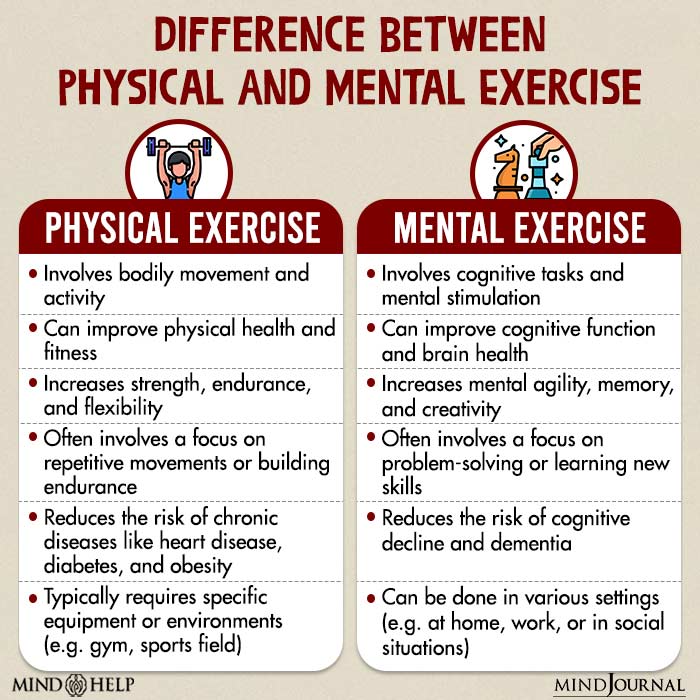
2. Strength Training: Muscles and Mind
Strength training exercises, including weightlifting or bodyweight exercises, offer more than just toned muscles. They also stimulate the brain and promote neuroplasticity, which is the brain’s ability to adapt and grow.
When you engage in strength training, your brain releases neurotrophic factors, such as brain-derived neurotrophic factor (BDNF), which support the growth and survival of brain cells. So, by hitting the weights, you’re not only sculpting your physique but also enhancing your brain function.
3. Brain Teasers and Puzzles: Mental Gymnastics
While physical exercise is crucial, mental exercise is equally important for maintaining brain health. Engaging in brain teasers, puzzles, crosswords, or Sudoku challenges your cognitive abilities, memory, and problem-solving skills.
These activities activate different regions of the brain, fostering neural connections and promoting mental agility. So, the next time you find yourself with some downtime, pick up a puzzle book or try an online brain-training app to keep your brain sharp. This is one of the best exercises for brain health.
4. Mindfulness Meditation: Calm the Mind, Boost the Brain
In our fast-paced world, it’s essential to find moments of calm and relaxation. Mindfulness meditation offers just that, along with numerous benefits for brain health. Regular meditation practice has been shown to reduce stress, improve attention span, and enhance memory and cognitive function.
By focusing on the present moment and practicing deep breathing, you can train your brain to be more focused, resilient, and adaptable.
Related: Unlocking Your Brain’s Potential: The Top Brain Hacking Techniques You Need To Know
5. Aerobic Dancing: Rhythm and Cognition
Who says exercise can’t be fun? Aerobic dancing, such as Zumba or dance-based fitness classes, combines cardiovascular exercise with rhythm and coordination. Dancing not only gets your heart rate up but also challenges your brain by requiring you to synchronize your movements with the music. Hence, it can increase brain health.
It stimulates various brain areas, including the hippocampus, responsible for memory formation. So, put on your dancing shoes and groove your way to a healthier brain!
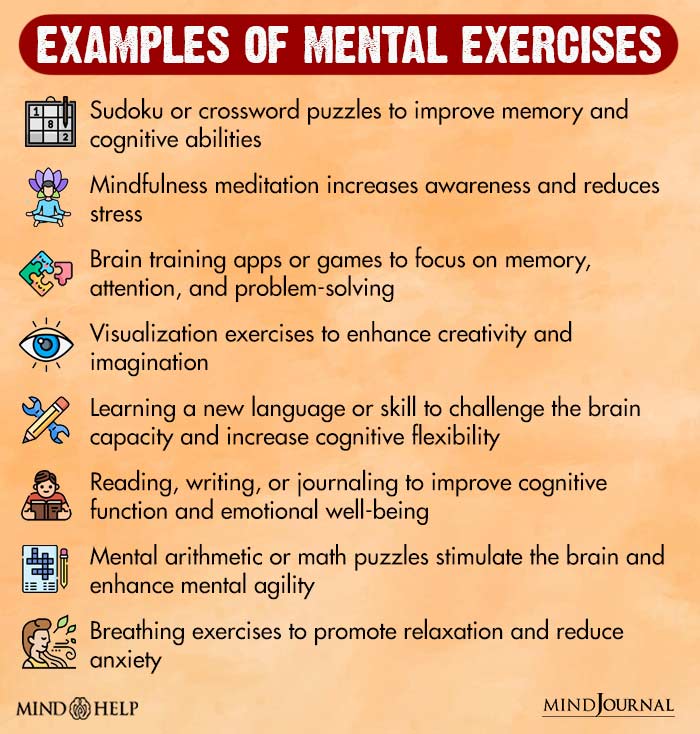
6. Social Engagement: Exercise for the Mind and Heart
Engaging in social activities can be a powerful exercise for your brain. Social interactions stimulate conversation, emotional connections, and cognitive engagement, all of which contribute to brain health. Join a book club, volunteer in your community, or participate in group exercise classes to combine physical activity with socialization.
These activities provide mental stimulation, reduce the risk of cognitive decline, and foster a sense of belonging, benefiting both your mind and heart.
7. Brain-Boosting Games and Apps: Fun and Functional
In today’s digital age, there are numerous brain-boosting games and apps available that can provide a workout for your mind. These games are specifically designed to challenge and stimulate different cognitive functions, such as memory, attention, problem-solving, and language skills.
Whether it’s a crossword puzzle app, a brain-training game, or a language-learning program, incorporating these activities into your routine can help keep your brain sharp and agile. Just make sure to choose reputable and scientifically-backed apps that target specific cognitive abilities you wish to improve. You should surely try this as it is one of the best exercises for brain health.
Related: Neuroscience Secrets: Your Brain Has A Delete Button And Here’s How You Can Use It
8. Outdoor Activities: Nature’s Brain Boost
Spending time in nature and engaging in outdoor activities can have a profound impact on brain health. Whether it’s a leisurely hike in the woods, a bike ride in the park, or gardening in your backyard, being in nature provides a refreshing change of scenery and an opportunity to disconnect from technology.
Research has shown that exposure to green spaces and natural environments can reduce stress, improve mood, and enhance cognitive function. So, make it a point to incorporate outdoor activities into your exercise routine and give your brain a much-needed breath of fresh air.
9. Coordination Exercises: Mind-Body Connection
Coordination exercises, like yoga, tai chi, or dance, focus on the mind-body connection. These activities require you to synchronize your movements, balance, and posture, engaging multiple areas of the brain simultaneously.
By challenging your coordination skills, you stimulate neural pathways, improve concentration, and boost cognitive flexibility. Additionally, coordination exercises can alleviate stress and promote relaxation, further benefiting your brain health.
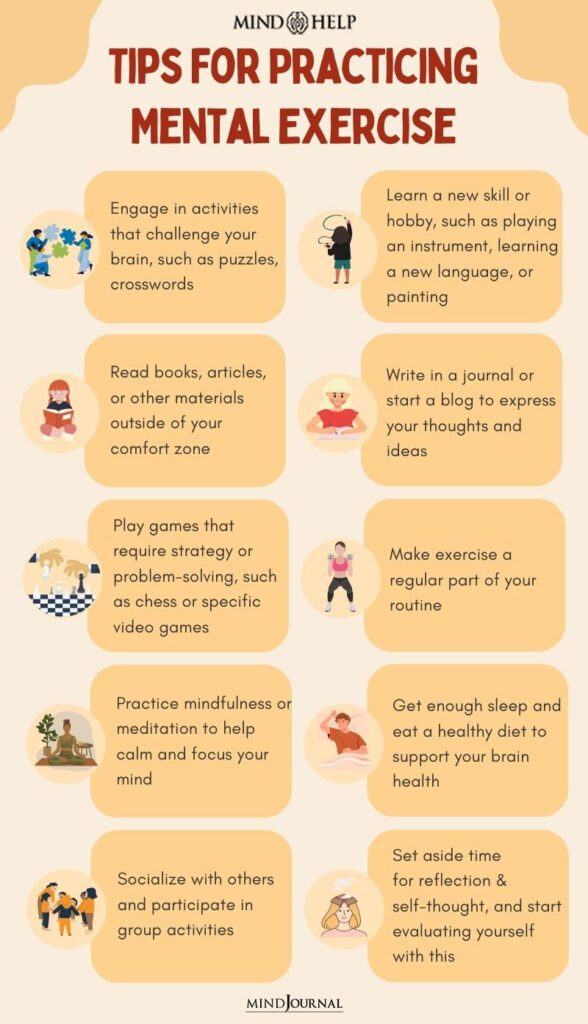
Takeaway
Incorporating exercises for brain health into your daily routine is not only beneficial for your physical health but also vital for maintaining optimal brain function. Regular physical and mental exercise helps increase blood flow and oxygen delivery to the brain, promotes neuroplasticity, and enhances memory, attention, and cognitive abilities.
Start small, stay consistent, and enjoy the journey of enhancing your brain health through exercise. Your brain will thank you with improved cognitive function, better memory, and a sharper mind that’s ready to take on any challenge.
So, let exercise be your secret weapon to boost memory, focus, and cognitive abilities. Remember, a healthy body and a healthy mind go hand in hand!
Related: 5 Mental Exercises That Can Help Resolve Emotional Issues
Frequently Asked Questions (FAQs):
Which exercise is best for brain?
The best exercise for the brain varies, but activities like aerobic exercise, puzzles, and meditation are known to enhance cognitive function.
How do I strengthen my brain?
To strengthen your brain, engage in activities like physical exercise, mental puzzles, learning new skills, and getting adequate sleep.
What is the healthiest thing to do for your brain?
For optimal brain health, prioritize activities like regular exercise, balanced nutrition, mental stimulation, quality sleep, and stress management.
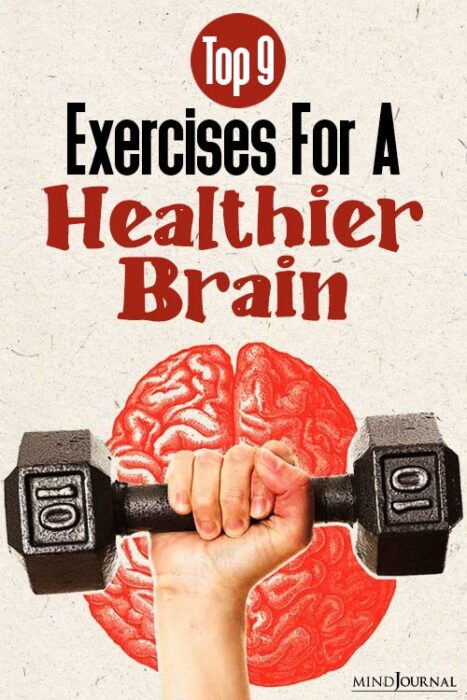


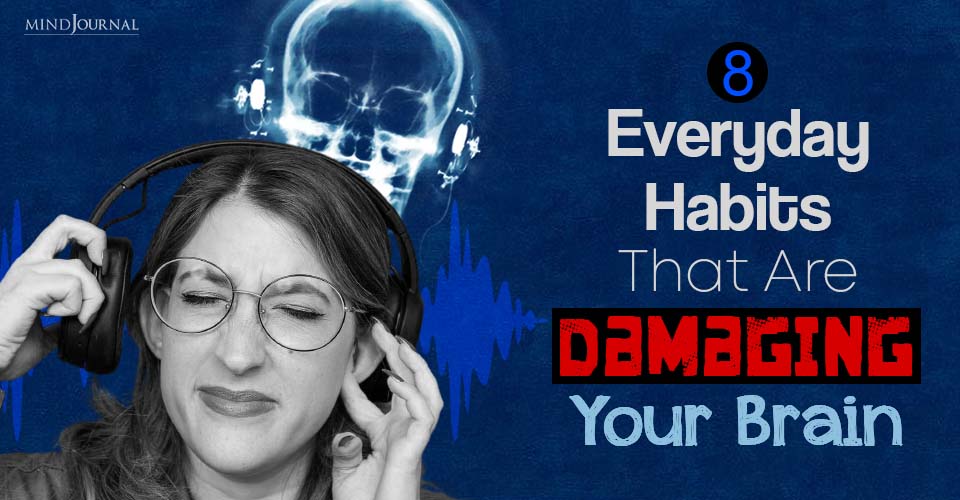





Leave a Reply
You must be logged in to post a comment.